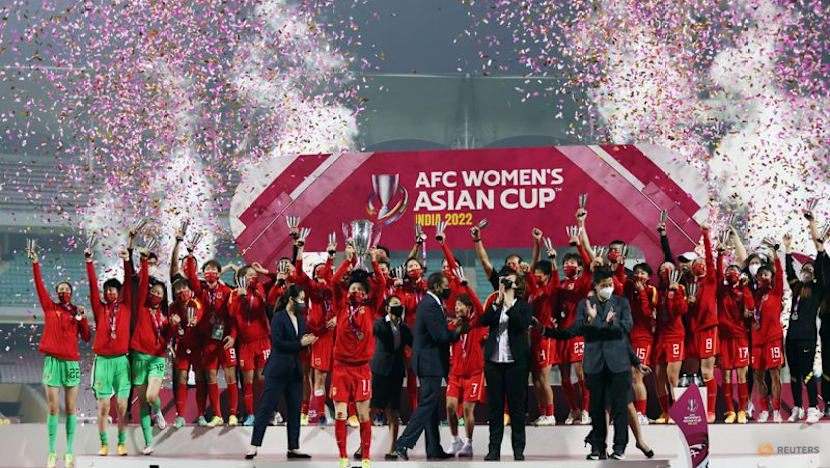Australia sets up taskforce to combat match-fixing at Women's Asian Cup

Soccer Football - Women's Asian Cup 2022 - Final - China v South Korea - D Y Patil Sports Stadium, Navi Mumbai, India - February 6, 2022 China captain Wang Shanshan holds the trophy and celebrates with team members after the match REUTERS/Francis Mascarenhas/File Photo
MELBOURNE :Australia will launch a national taskforce next week to tackle match-fixing at the upcoming Women's Asian Cup and boost cooperation between police, betting companies and sports bodies in the wake of a slew of corruption cases in elite soccer.
The taskforce's first meeting will be held in Melbourne on Wednesday and also include officials from the country's border security force and financial crime watchdog AUSTRAC.
Government watchdog Sport Integrity Australia (SIA), which will lead the group, said it had received no specific intelligence suggesting threats to the 12-nation Asian Cup, which Australia will host from March 1-21.
However, the taskforce would focus on prevention, deterrence and education, the SIA told Reuters on Thursday.
"Athletes arrive from a wide range of countries, each with different levels of understanding and attitudes towards match-fixing," said James Moller, SIA head of international relationships and strategy.
"Part of our role is to make it very clear that match-fixing is a criminal offence in Australia, taken very seriously, and investigated accordingly by law enforcement."
Australian soccer has seen two spot-fixing cases in the courts in recent months involving players at teams in the top-flight A-League.
Former Macarthur Bulls captain Ulises Davila pleaded guilty at a Sydney court on Thursday to corruption charges involving manipulation of yellow cards in A-League matches.
Two of his former teammates were fined by a court last month while avoiding convictions in the same case.
Former Western United midfielder Riku Danzaki was convicted of fraud in August in a separate case of yellow card manipulation in the A-League.
The national soccer players' union called on Australian authorities to ban gambling on yellow cards to stop manipulation in matches.
Moller said gambling regulation was important but not in the SIA's remit.
"What I can say is that, while domestic regulation is important, many of the more concerning betting markets exist offshore, where we have limited ability to intervene," he added.
"These markets can include types of bets that are more vulnerable to manipulation, and they present an ongoing risk regardless of how we regulate locally."













